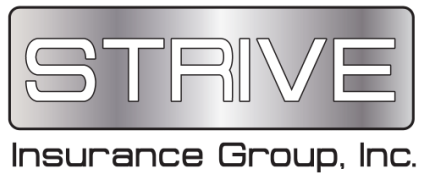|
A Comprehensive Risk Guide
As an insurance agent specializing in life sciences firms, I understand the unique risks and challenges that these companies face. From product liability to data breaches, the stakes are high, and effective risk management is crucial for business survival. In this blog, we'll explore risk management strategies tailored to life sciences firms, including insurance as a key component, to help you protect your business and drive growth. Identify and Assess Risks Conduct a thorough risk assessment to identify potential threats, including:
Ready to safeguard your life sciences firm? Contact me to schedule a risk management consultation. Let's work together to ensure your business thrives. [ As a property manager, you work hard to maintain properties and ensure tenants are satisfied. However, unexpected events can occur, and insurance claims may be necessary. Here are three examples of property manager insurance claims and how they can help:
Example 1: Liability Claim - Slip and Fall
Need help navigating property manager insurance claims? Contact me to discuss your unique needs and ensure you're adequately covered. As a medical professional, you understand the importance of protecting your practice from unforeseen risks. Insurance is a crucial aspect of risk management, and finding the right coverage can be overwhelming. In this article, we'll guide you through the process of getting the best insurance for your medical office.
Assess Your Risks
Ready to safeguard your medical office? Contact me at to schedule a comprehensive insurance review. Let's work together to ensure your practice thrives. Medical device companies play a critical role in improving patient outcomes and saving lives. However, they also face a unique set of risks that can impact their reputation, finances, and ability to deliver life-saving products. In this article, we'll explore the top risks facing medical device companies and the most effective ways to manage them.
Top Risks:
Business interruption coverage is crucial to commercial property insurance, providing financial support when unexpected events disrupt business operations. This coverage is especially important for property managers and medical office buildings, as it helps ensure continuity of operations and maintenance of revenue streams. In this article, we'll delve into the details of business interruption coverage, its benefits, and how it applies to these buildings.
What is Business Interruption Coverage? Business interruption coverage, or business income coverage, is an extension of commercial property insurance. It reimburses lost business income and expenses when a covered event, such as a fire, natural disaster, or equipment failure, forces a business to suspend operations. Key Benefits for Property Managers and Medical Office Buildings
As a biotech firm, you're at the forefront of innovation, developing cutting-edge products and technologies that transform lives. However, this pioneering work comes with unique risks. To safeguard your business, intellectual property, and employees, you need tailored insurance coverage. In this blog, we'll explore three essential insurance coverages biotech firms can't do without:
1. Product Liability Insurance Biotech firms develop and manufacture complex products, such as pharmaceuticals, medical devices, and biologics. Product Liability insurance protects your business in case these products cause harm or injury to patients, users, or consumers. This coverage is crucial, as even a single product recall or lawsuit can be financially devastating. 2. Intellectual Property Insurance Biotech firms invest heavily in research and development, generating valuable intellectual property (IP) such as patents, trademarks, and trade secrets. Intellectual Property insurance safeguards your business against IP infringement, theft, or misuse. This coverage helps you defend your IP rights, recoup lost revenue, and even pursue legal action against infringers. 3. Directors and Officers (D&O) Liability Insurance Biotech firms are led by boards of directors and officers who make strategic decisions that impact the company's success. Directors and Officers (D&O) Liability insurance protects these individuals from personal liability in case of lawsuits, regulatory actions, or other claims. This coverage is vital, as D&O claims can arise from allegations of wrongful acts, breach of duty, or negligence. Biotech firms face unique risks and challenges, but with the right insurance coverage, you can mitigate these risks and focus on driving innovation and growth. Don't leave your business exposed – consider investing in Product Liability, Intellectual Property, and D&O Liability insurance to safeguard your company's future. Protect your biotech firm today! As a landlord, your rental properties are a significant source of income. But what happens when unexpected events like natural disasters, fires, or tenant damage disrupt your rental operations? Without proper insurance coverage, you may face financial losses and even risk losing your investment.
We'll explore the importance of Business Interruption and Extra Expense insurance for landlords, and how these policies can help mitigate financial losses and ensure continuous rental income. Business Interruption Insurance: A Safety Net for Landlords Business Interruption insurance (also known as Business Income insurance) helps replace lost rental income when your property becomes uninhabitable due to a covered event. This policy provides financial support during the repair or rebuilding process, ensuring you can continue to meet your financial obligations, such as:
Extra Expense Insurance: Covering Unforeseen Costs Extra Expense insurance helps cover unexpected expenses incurred while your property is being repaired or rebuilt. This policy can help pay for:
Real-Life Scenarios: Why These Policies Matter Fire damage: A fire destroys a portion of your rental property, leaving it uninhabitable. Business Interruption insurance helps replace lost rental income while repairs are made, while Extra Expense insurance covers temporary housing for displaced tenants. Hurricane damage: A hurricane causes significant damage to your property, requiring extensive repairs. Business Interruption insurance ensures you can continue paying your mortgage and other expenses, while Extra Expense insurance helps cover emergency repairs and debris removal. As a landlord, protecting your rental income is crucial. Business Interruption and Extra Expense insurance policies provide a financial safety net, ensuring you can weather unexpected events and keep your rental operations running smoothly. Don't leave your rental income to chance – consider investing in these essential policies to safeguard your investment and ensure a steady stream of income. Protect your rental properties today! In today's litigious society, where multimillion-dollar lawsuits can arise from simple accidents or unforeseen events, businesses must ensure they have adequate protection beyond standard liability policies. This is where commercial umbrella insurance steps in, offering an additional layer of security that can be crucial for a business’s survival. Here’s why every business should consider adding commercial umbrella insurance to their risk management strategy:
1. Extended Coverage Limits What It Offers: Commercial umbrella insurance provides additional coverage when the limits of your underlying liability policies (like general liability, auto liability, and employers' liability) are exhausted. For example, if a lawsuit costs $2 million to settle and your general liability covers only $1.5 million, your umbrella policy can cover the additional $500,000, thus protecting your business assets from being used to cover the shortfall. Why It’s Important: Businesses often face risks that can result in claims exceeding standard policy limits. Umbrella insurance acts as a safety net, ensuring that a business isn't crippled financially by a single incident. This is especially important in high-risk industries or those prone to large liability claims. 2. Broader Coverage What It Offers: Besides providing higher limits, commercial umbrella insurance sometimes covers claims that are not included in primary liability policies. This can include certain legal fees, contractual liabilities, and liabilities over business practices that may not be typically covered under standard policies. Why It’s Important: The broad nature of coverage under umbrella insurance means that businesses can be protected against unforeseen gaps in their primary insurance policies. This comprehensive coverage is vital for peace of mind and continuous business operations, particularly in dynamic environments where unexpected legal challenges can arise. 3. Cost-Effectiveness What It Offers: Commercial umbrella insurance is generally cost-effective, especially compared to the increase in limits it provides. Premiums are relatively low because the umbrella policy only kicks in after the primary insurance limits are reached, which makes it a less frequently used policy. Why It’s Important: For a relatively small additional cost, businesses can significantly increase their liability coverage. This makes commercial umbrella insurance an efficient way to boost total coverage without proportionately increasing insurance costs, providing substantial financial protection relative to the investment. 4. Reputation Protection What It Offers: By ensuring that claims can be settled fully and promptly, umbrella insurance helps in protecting a business’s reputation. Handling claims efficiently prevents negative publicity and maintains customer trust. Why It’s Important: A business’s reputation is one of its most valuable assets. In the event of a large claim, having the financial backing to resolve issues swiftly and fully can help avert potential reputation damage, which can be costly and difficult to recover from. 5. Peace of Mind What It Offers: With umbrella insurance, business owners can have peace of mind knowing they are protected against catastrophic losses that could potentially bankrupt their operations. Why It’s Important: Running a business involves managing daily risks. With the protection of an umbrella policy, business owners can focus more on growth and less on the potential for devastating financial implications from lawsuits. Commercial umbrella insurance is an essential component of a comprehensive business insurance strategy. It not only extends the limits of existing liability coverages but also ensures broader protection, making it an indispensable safeguard for businesses aiming to secure their future against the uncertainties of high-cost liabilities. Texas is renowned for its vibrant culinary scene, from mouthwatering barbecue joints to upscale dining establishments. Behind the scenes of these culinary delights, restaurant owners navigate a complex landscape of risks and liabilities unique to the hospitality industry. To ensure a recipe for success, every Texas restaurant must have a robust insurance portfolio tailored to its specific needs. In this blog, we explore the five essential insurance coverages that can protect restaurants across the Lone Star State.
1. General Liability Insurance: General liability insurance serves as the foundation of protection for Texas restaurants. It provides coverage for third-party bodily injury, property damage, and personal injury claims that may arise on the restaurant premises. From slip-and-fall accidents to foodborne illness claims, general liability insurance shields restaurant owners from potential lawsuits and financial liabilities, preserving their reputation and financial stability. 2. Property Insurance: Property insurance is essential for safeguarding the physical assets of Texas restaurants, including buildings, equipment, furnishings, and inventory. In the event of fire, theft, vandalism, or natural disasters such as hurricanes or tornadoes, property insurance provides coverage for repair or replacement costs, ensuring that restaurants can recover swiftly from losses and resume operations without major disruptions. 3. Liquor Liability Insurance: For restaurants that serve alcohol, liquor liability insurance is a crucial coverage to consider. Texas law holds businesses accountable for injuries or damages caused by intoxicated patrons served alcohol on their premises. Liquor liability insurance protects restaurants against claims related to accidents, fights, or other incidents involving intoxicated customers, helping to mitigate the financial risks associated with alcohol service. 4. Workers' Compensation Insurance: Restaurant employees are exposed to various hazards in the workplace, from hot surfaces and sharp utensils to slippery floors and heavy lifting. Workers' compensation insurance is mandatory in Texas and provides coverage for medical expenses, lost wages, and disability benefits for employees injured on the job. By prioritizing employee safety and compliance with state regulations, restaurant owners demonstrate their commitment to a supportive and responsible work environment. 5. Business Interruption Insurance: Business interruption insurance provides crucial financial protection for Texas restaurants in the event of unexpected closures or disruptions to operations. Business interruption insurance covers lost income, ongoing expenses, and additional costs incurred during the period of interruption. This coverage helps restaurants navigate challenging times and maintain financial stability until normal operations can resume. In the competitive and dynamic landscape of Texas' restaurant industry, success is not just about serving delicious food—it's also about managing risks effectively. By investing in essential insurance coverages tailored to their needs, Texas restaurants can protect their assets, mitigate liabilities, and focus on what they do best: delight customers with memorable dining experiences. With the right insurance protection in place, restaurants can savor the taste of success in the Lone Star State. 3/20/2024 Why Medical Offices Need InsuranceNavigating the Essentials for Protection In the healthcare sector, medical offices serve as critical touchpoints for patient care, providing a wide array of services from routine check-ups to specialized treatments. Given the sensitive nature of healthcare services and the potential for financial, legal, and reputational risks, it's imperative for medical offices to have comprehensive insurance coverage. The Necessity of Insurance for Medical Offices Medical offices are exposed to a variety of risks that can arise from their operations, including professional errors, accidents on the premises, data breaches, and more. Insurance plays a vital role in managing these risks by providing financial protection and support in case of legal actions or claims against the office. Without adequate insurance, a single lawsuit or unforeseen event could potentially devastate the financial stability and operational continuity of a medical practice. Critical Types of Insurance for Medical Offices 1. Professional Liability Insurance (Malpractice Insurance) Professional liability insurance, commonly referred to as malpractice insurance, is paramount for any medical office. This coverage protects healthcare providers against claims of negligence or harm resulting from their professional services. Given the complexity of medical treatments and the potential for adverse outcomes, malpractice insurance ensures that medical practitioners can defend against claims and pay out settlements or judgments without jeopardizing their financial well-being. 2. General Liability Insurance General liability insurance covers non-professional operational risks, such as bodily injury or property damage that could occur within the medical office premises. For instance, if a patient slips and falls in the waiting room, this insurance can cover medical costs for the injured party and legal fees if the practice is sued. It's a fundamental coverage that addresses common accidents or injuries that can happen in any business setting. 3. Cyber Liability Insurance With the increasing reliance on electronic medical records and digital healthcare platforms, medical offices are prime targets for cyber attacks. Cyber liability insurance provides protection against risks related to data breaches, loss of patient information, and cyber extortion. This type of insurance can cover notification costs, legal fees, and fines associated with data protection regulations, as well as recovery and repair of compromised systems. 4. Property Insurance Property insurance is crucial for protecting the physical assets of a medical office, including medical equipment, office furniture, computers, and the building itself if owned by the practice. This coverage helps repair or replace property damaged by fire, theft, vandalism, or natural disasters, ensuring the office can recover and resume operations swiftly after an unexpected event. 6. Business Interruption Insurance Business interruption insurance compensates for lost income and covers operating expenses when a medical office is forced to close temporarily due to a covered event, such as a natural disaster or major equipment failure. This type of insurance is essential for maintaining financial stability during periods when the office cannot operate as usual. Insurance is not just a regulatory requirement for medical offices; it's a critical component of risk management and financial planning that safeguards the practice's future. By securing comprehensive coverage across these key areas, medical offices can protect themselves against a wide range of risks, from professional liability to property damage and beyond. Investing in the right insurance policies ensures that medical practitioners can continue to provide essential healthcare services without the looming threat of financial ruin due to unforeseen events or legal challenges. |
Archives
June 2024
Categories
All
|











 RSS Feed
RSS Feed
7/25/2024
0 Comments